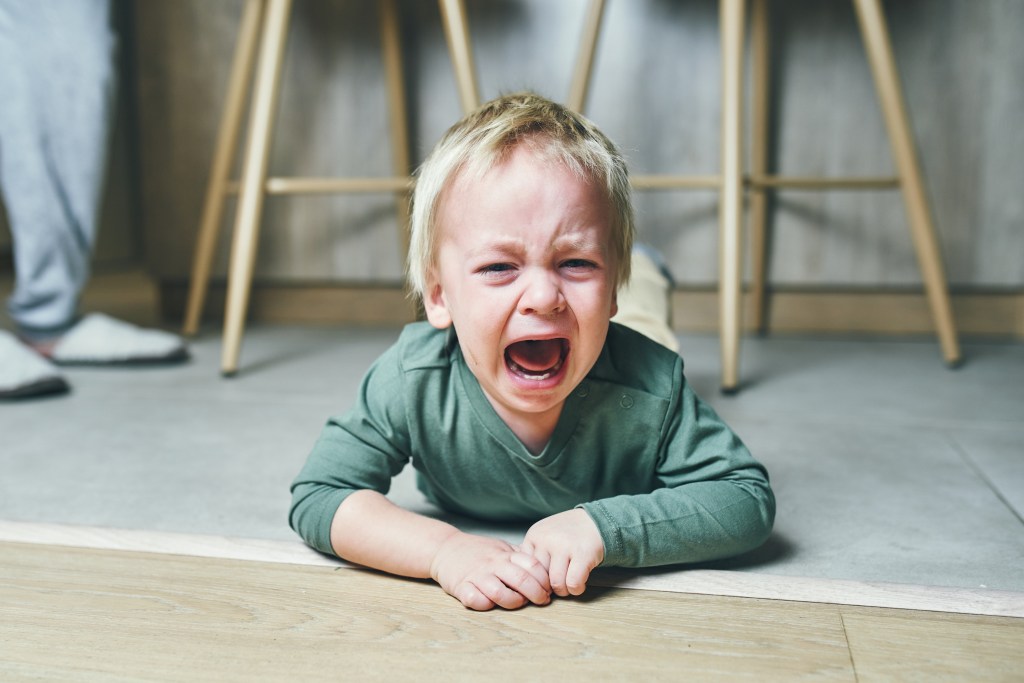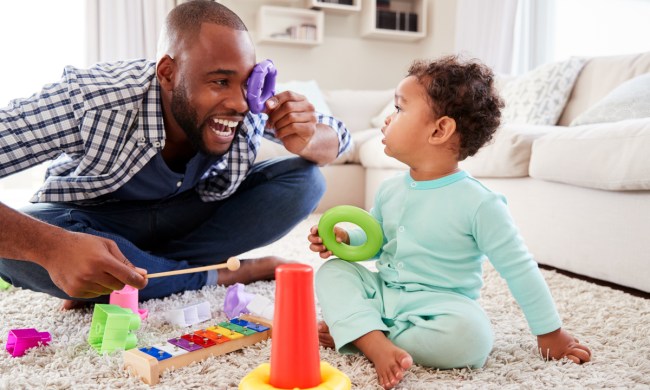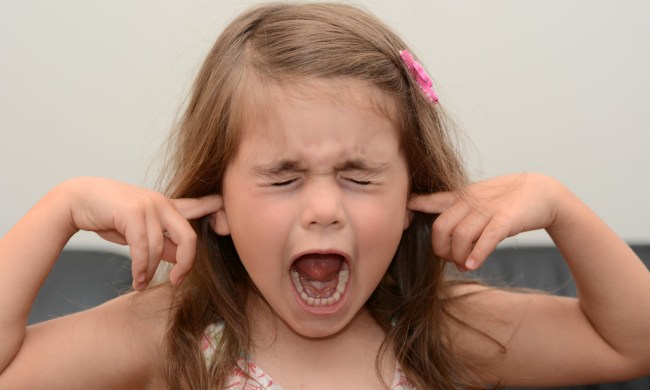You’ve heard of the Terrible Twos… and now you’re living through them. Sadly, the only way out is through.
While your cooing infant and giggling toddler has given way to an unrecognizable Hulk, there is an explanation and there is hope. With some understanding and patience, you’ll be able to weather the storm and figure out how to handle your two-year-old’s newfound anger.

What emotions do two-year-olds have?
Two-year-olds are notoriously emotional. While you may have seen sadness or happiness as primary feelings before, as they enter their third year, you’ll start to see anger much more. You may see these signs:
- Screaming/yelling
- Biting
- Hitting
- Throwing things
- Crying
These occurrences might happen all at once in a tantrum, but why does this happen at this age?
Why is my two-year-old suddenly so emotional?
Mood swings in two-year-olds are totally normal, according to the American Academy of Pediatrics: “They are signs of the emotional changes taking place as your child struggles to take control of actions, impulses, feelings, and his body.”
Two-year-olds are learning to do so much, from feeding themselves to dressing themselves to going to the bathroom on the potty, and there are many opportunities for frustration when they don’t get something right. You’re also setting a lot of boundaries with them like telling them they can’t touch a hot stove, stay up until midnight, or watch TV all day. Two-year-olds’ brains haven’t developed to a point where they can handle these disappointments with grace so they can get very upset. By age three or four they’ll have more skills to calmly take in information that isn’t what they wanted to hear, but for now, they’re more likely to have tantrums. It’s expected and not something to worry about — and not really something you can avoid.

Why is my two-year-old so mean to me?
It can feel like a personal attack when your sweet baby turns on you, even if it is a normal part of development. The American Academy of Pediatrics (AAP) offers this explanation:
At this age, your child wants to explore the world and seek adventure. As a result, he’ll spend most of his time testing limits—his own, yours, and his environment’s. Unfortunately, he still lacks many of the skills required for the safe accomplishment of everything he needs to do, and he often will need you to protect him. When he oversteps a limit and is pulled back, he often reacts with anger and frustration, possibly with a temper tantrum or sullen rage. He may even strike back by hitting, biting, or kicking. At this age, he just doesn’t have much control over his emotional impulses, so his anger and frustration tend to erupt suddenly in the form of crying, hitting, or screaming. It’s his only way of dealing with the difficult realities of life. He may even act out in ways that unintentionally harm himself or others. It’s all part of being two.
Just because it’s normal doesn’t mean it’s any easier. Setting boundaries, redirecting, and waiting it out to the next developmental stage while talking to your support networking will help you make it through.
How do you know if your child has anger issues?
Since angry outbursts are normal at this age, it’s less likely that anger issues are a cause for concern since two-year-olds cannot regulate their emotions. If your child seems out of control and suddenly quick to anger, you’re in the same boat as many other parents of kids this age. Even if they are quick to anger every day, that is within the range of normal development.
One way to try to tell if you have a serious issue on your hands is to see how your child acts around others. The AAP says:
Have sitters or relatives ever told you that your child never behaves badly when they’re caring for him? It’s not uncommon for toddlers to be angels when you’re not around, because they don’t trust these other people enough to test their limits. But with you, your toddler will be willing to try things that may be dangerous or difficult, because he knows you’ll rescue him if he gets into trouble.
If your child is not acting out in anger around others, you shouldn’t have to worry about any condition of concern. However, anytime you are worried about your child, always reach out to your pediatrician.



